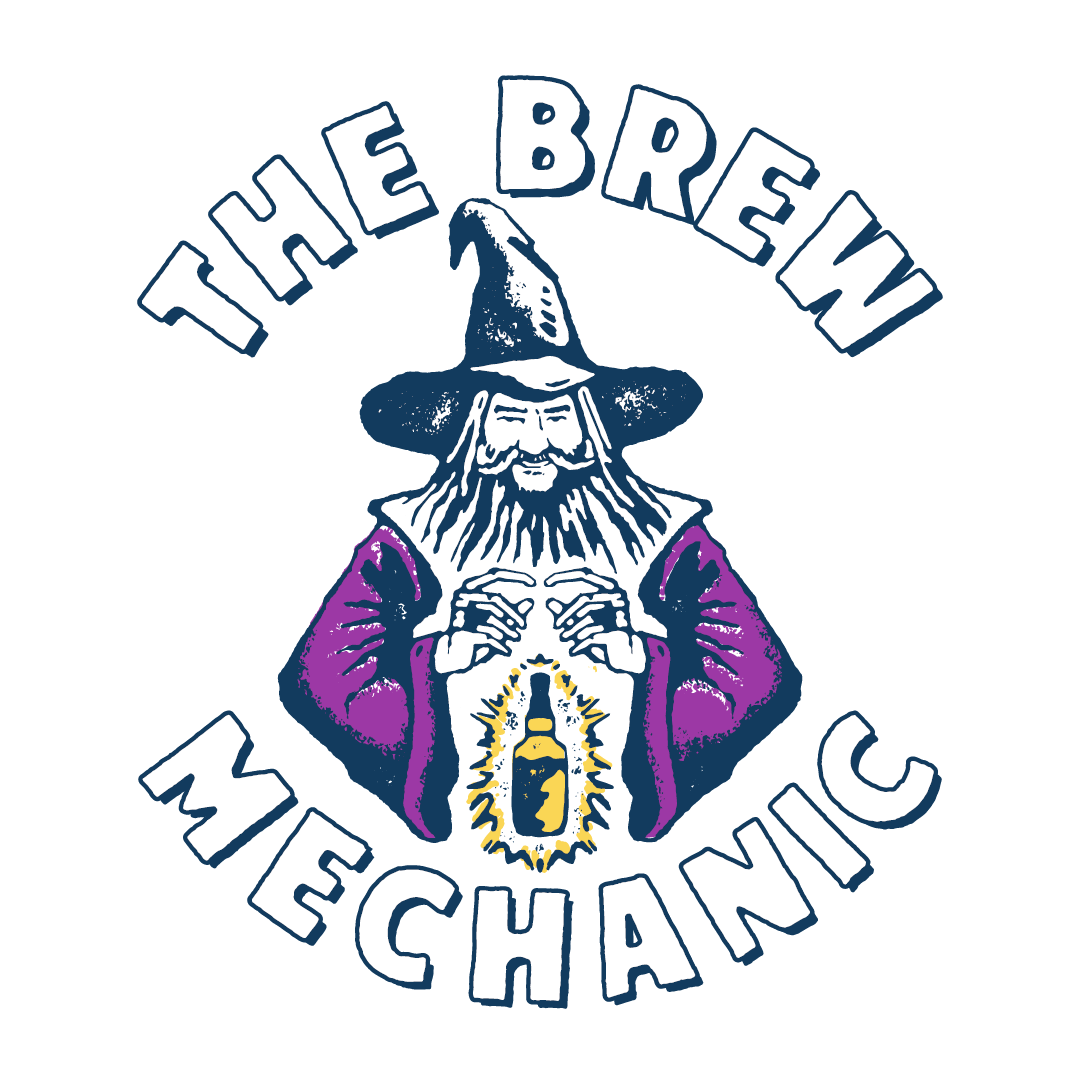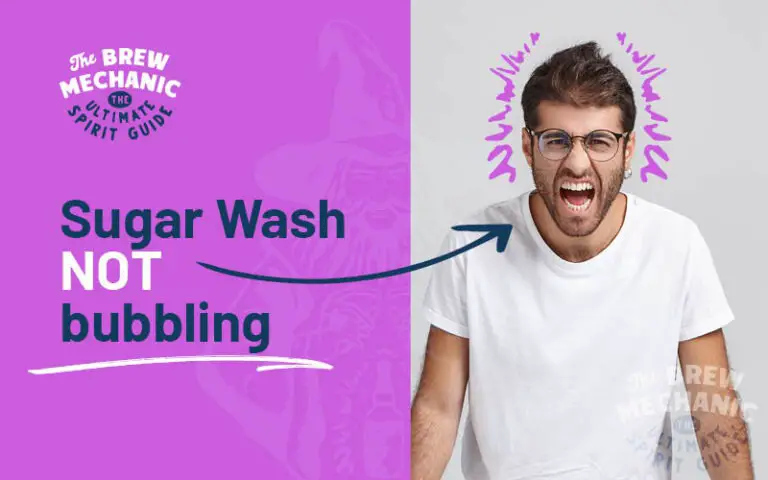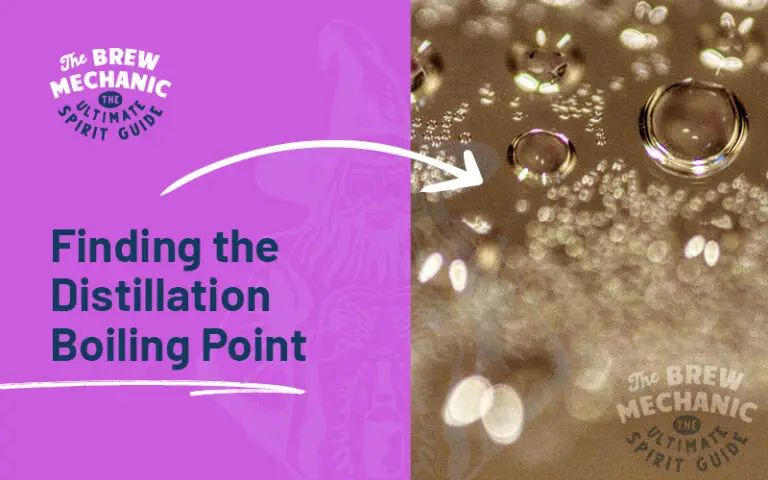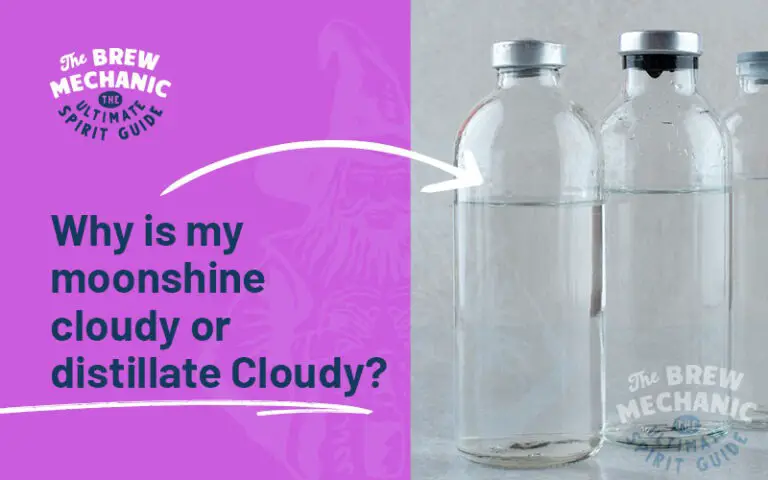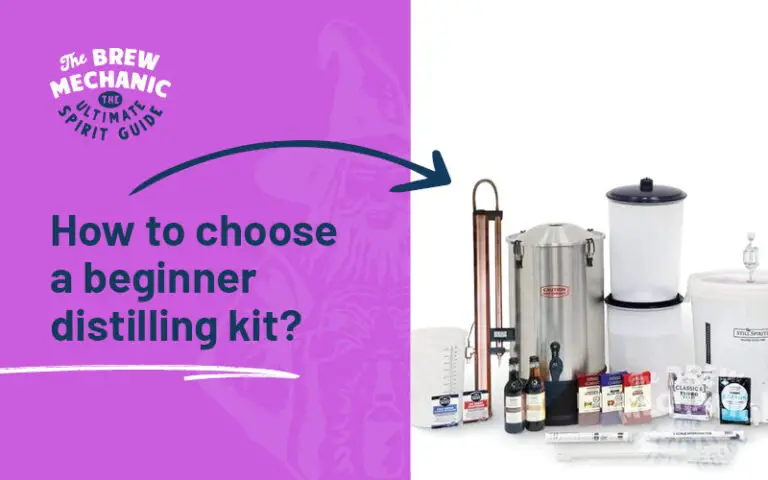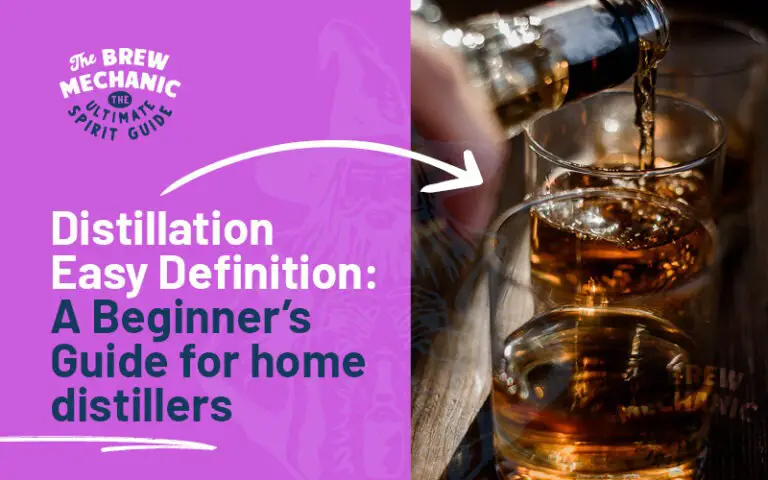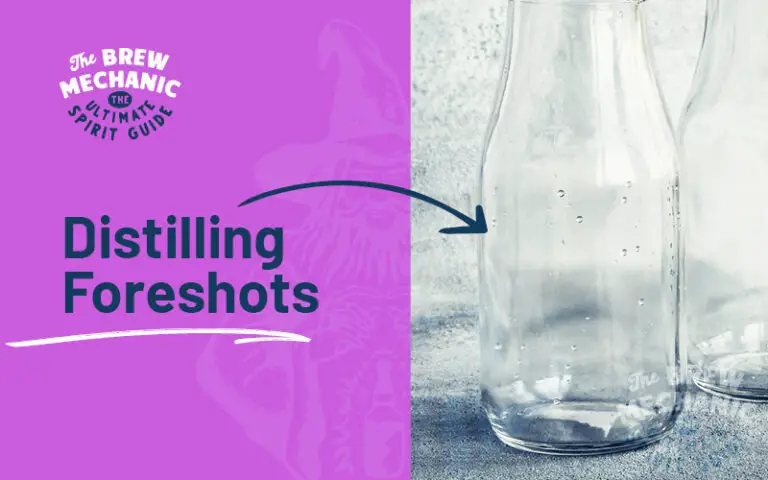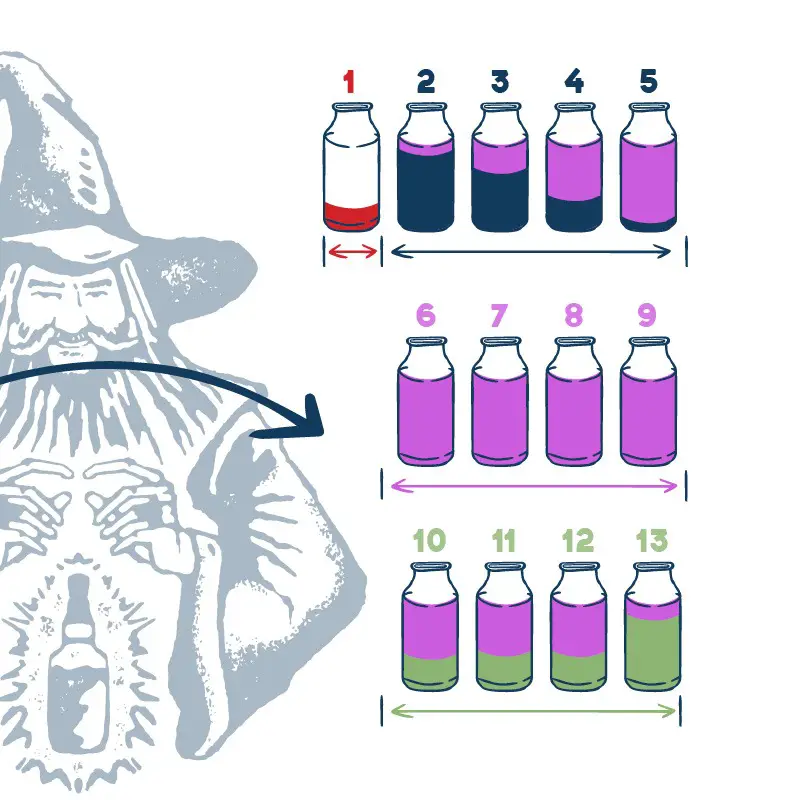All About Fermentation Alcohol Process of Sugar Wash to Ethanol
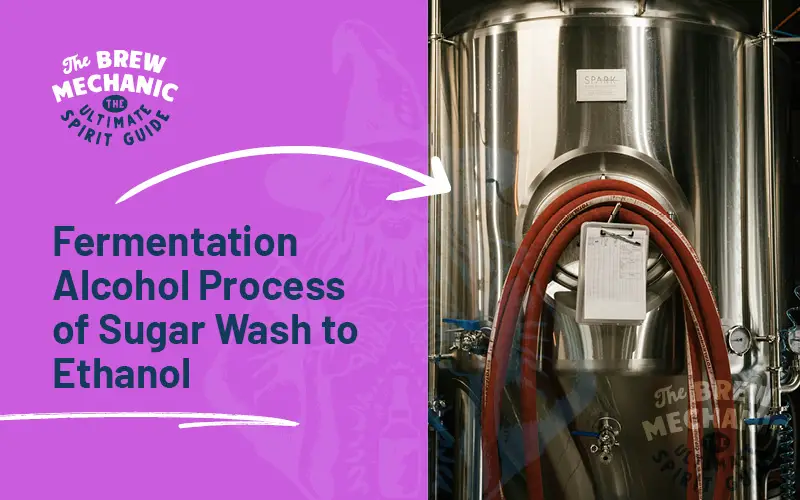
Disclaimer: This post might include affiliate links, through which I may earn a small commission without any extra cost to you. Additionally, I am an Amazon Associate and earn from eligible purchases. All the products and services I suggest are ones I have personally used or would use. Thank you very much for your support if you decide to buy through any of my links!
Come join the Distilling Squad!
Get the best fundamental tips & tricks here. Woohoo!
First of all, I am not a chemist but have lots of experience in petrochemical and alcohol plants. These are my views based on the alcoholic fermentation experience. We will go through 26 questions about the fermentation alcohol process.
1. What is the conversion of sugar into alcohol during fermentation occurs?
The process where sugar (Sucrose) is split into Glucose and fructose and converted to alcohol with CO2 and low-end esters. This turns into products of alcoholic fermentation.
2. Ethanol from fermentation is used for.
3. What is alcoholic fermentation?
Transformation from sugar (glucose & fructose) reacting with yeast, nutrients and water to ethanol, esters and carbon dioxide.
4. What are product yield and fermentation yield in the process?
5. What is the yield of ethanol from sugar?
The process where sugar is converted into an alcohol.
Conversion of sugars into Ethanol which is a theoretical yield of 51% “DIY” is more like 48% balance being CO2 and lower-end ester. Based on many factors.
6. Does more sugar mean more alcohol in fermentation?
Yes, it does to a degree but the yeast used has an alcohol tolerance level and must not go beyond that, otherwise, you can start to poison (toxic) the yeast which will lead to less alcohol made. Do not stress the yeast.
7. Does the amount of sugar affect the rate of alcoholic ferment in yeast?
Sugar does affect the rate of fermentation alcohol process reaction. The higher the glucose level will increase the ethanol production and rate of fermentation
8. Why is too much sugar bad for the fermentation process?
The ratio of sugar to yeast must be correct for your application. By increasing the sugar level beyond that you get to a point where the yeast will keep on feeding but will inhibit poison (toxic) itself and leave unfermented sugar in the wash thus actually making less alcohol.
9. Does more sugar in yeast mean faster fermentation?
The first question you must ask is why are you adding more sugar over and above the initial amount and ratio?
More sugar will increase the yeast’s rate of fermentation. This depends on the yeast used, at what stage the ferment is at and the yeast tolerance level.
10. Which sugar is more difficult to ferment?
Sugar (sucrose) is broken easily down into Glucose, fructose and Lactose. Lactose does not ferment into alcohol.
11. Should you stir sugar wash while during the fermentation alcohol process.?
The only time you will stir (wooden paddle) the wash during fermentation is if you are having a problem with a stalled or stuck wash. To stir in the aerobic stage is fine to bring up the lazy yeast. Be careful to stir in the anaerobic stage as you do not want oxygen into the sugar wash. The other reason is you can introduce bacteria to the wash which is not good.
12. What must be added to sugar to produce ethanol?
To make ethanol you must add yeast, nutrients and water.
13. What is the yield of ethanol from sugar? (How much made)
To make ethanol you must add yeast, nutrients and water.
14. Table sugar or sugar cane for DIY
DIY: I would say table sugar is more accessible in any food shop.
Breaking this down based on 1000g sugar and 48% = 480ml of ethanol
In industry, they use sugar cane molasses as it is purchased in bulk with analysis refer to sugar concentration etc.
15. What does yield mean in alcohol? “Is this Easy to calculate in DIY”
The theoretical value is 51% efficiency but the more accurate value is 48 > 50% depending on your skill and how you run it
15.1. Basically is how much ethanol do you get out from one fermented batch.
This is from the fermented sugar wash to distillate captured.
15.2. To accurately calculate this in the DIY is not easy as there are so many factors that start from the fermentation side. Plus you don’t have the instruments.
The following affects the fermentation
16. Does longer fermentation mean more alcohol?
The answer to that is no.
The longer the ferment the drier it would become if there is available sugar for the yeast to feed on. It can get to a stage where it will start to smell off.
What controls the alcohol level is the type of yeast used in the ratio of sugar to water etc. Once all the sugars have fermented that’s it. No more alcohol.
The time taken to do a full ferment (7 > 14 days) till complete can and does vary based on many factors. Temperature, oxygen, pH, yeast type, OG based on sugar, nutrients.
17. How do you increase fermentation yield?
Fermentation is where the whole alcohol process starts. Good ferment good yield
You must improve on the control efficiency of the fermentation cycle. One big factor is the temperature control must be steady with little or no fluctuations. Enough oxygen is introduced at the aerobic phase. Correct pH, have an exothermic controlled reaction at the start of the reaction. All these will point to a good ferment.
18. Will adding yeast nutrients help a stuck fermentation?
The answer to that is yes. It can be yeast hulls, DAP, or extra sugar based on the density.
A batch should never get stuck if you know and react before it happens.
Built into your recipe should be yeast hulls as this stops a batch from becoming stuck. If you follow the batch carefully you can easily prevent a batch from getting stuck. Act before it happens.
19. How much alcohol (tolerance level) to stop fermentation?
The control here is the yeast tolerance level. If there is too much sugar in the batch and once the tolerance level of say 14% has been reached the yeast will still carry on fermenting but the inverse now happens as the yeast starts to make less alcohol due to poisoning (toxic) itself.
20. How do you know when alcohol fermentation is done?
The most accurate way is using a brew hydrometer. Take a sample and measure the density. Take a sample the following day and if the result (density) has not changed then yes the fermentation is complete and that can be recorded as the FG.
From the FG – OG x factor you now measure the potential ABV of that batch.
20. How do you know when alcohol fermentation is done?
The control here is the yeast tolerance level. If there is too much sugar in the batch and once the tolerance level of say 14% has been reached the yeast will still carry on fermenting but the inverse now happens as the yeast starts to make less alcohol due to poisoning (toxic) itself.
21. Can you stop fermentation?
Yes, you can by lowering the temperature below > 20°C (35.6°F) which will slow it down eventually stopping the reaction. But this is not normal. The other way is if you are satisfied with the FG and it is still fermenting add Bentonite while fermenting will stop the reaction and cause the yeast to settle as sludge.
22. How long does it take yeast to turn sugar into alcohol?
Under normal circumstances, it can take 3 to 10 days for the sugar to be converted to alcohol. This is also dependent on the type of yeast used, the amount of sugar charged and the FG you are aiming for will play a big factor in the fermentation alcohol process.
23. What converts sugar into alcohol?
During ethanol fermentation, the yeast converts the sugar into ethanol with CO2 as a by-product (blanket). The absence of oxygen (no oxygen) is present when the conversion is done and known as an anaerobic process.
24. How to stop a fermentation?
25. Why does Fermentation reduce (stop) towards the end of its run?
The correct (controlled) ratio of yeast/sugar reduces its run towards the ends because it has eaten all the sugar and converted it to alcohol.
26. What can cause sluggish fermentations?
The key learnings from fermentation with alcohol
With all these questions about the alcoholic fermentation related to sugar wash. It is time to get stuck into making your alcoholic beverages.
These questions can be applied to beer and wine. Knowledge of yeast fermentation and learning yeast strains is important. Also finding out what needs the yeast to produce the best reaction for the fermentation alcohol process.
Last Updated on Jan 25, 2025 by The Brew Mechanic
Disclosure: I may receive affiliate compensation for some of the links below at no cost to you if you decide to purchase a product or service. You can read our affiliate disclosure in our privacy policy. The information provided is for entertainment only.

With 35 years of knowledge of being a chemical engineer in alcohol manufacturing plants, my mission is to teach the next generation of home distilling alcohol brewers at a supernatural speed.
My reviews are based on real-life experiences with reflux stills, sugar wash, troubleshooting and mystical chemical reactions.
